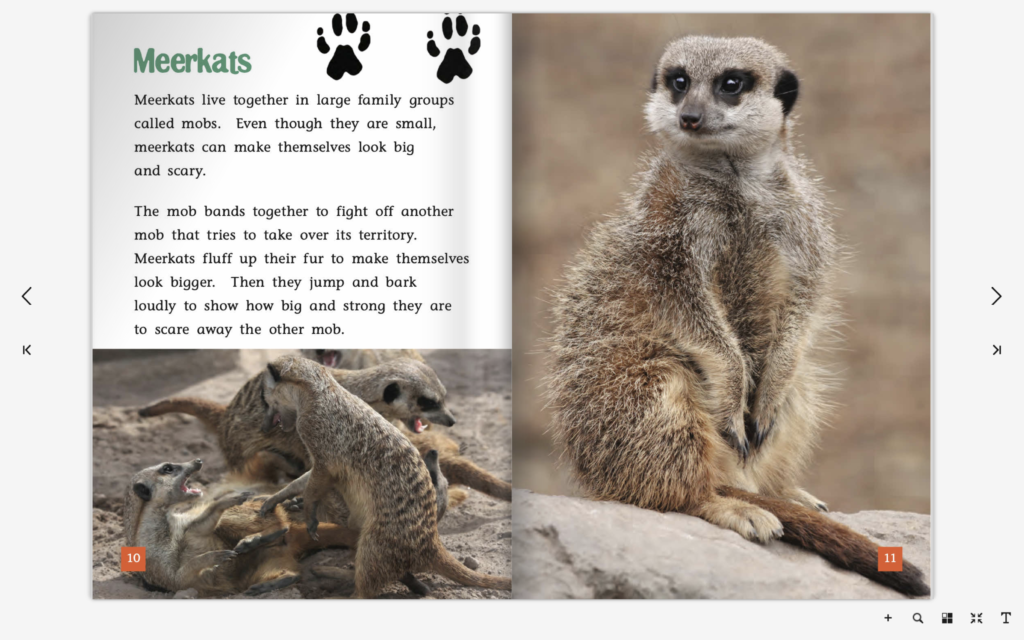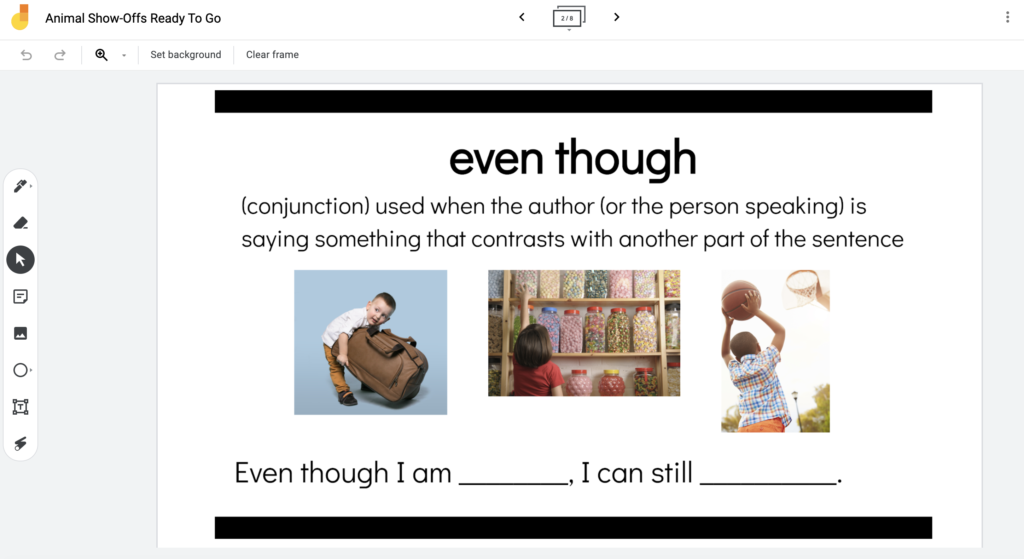
BUT. DESPITE. WHEREAS. ALTHOUGH. IN CONTRAST. INSTEAD. HOWEVER. YET. WHILE. NEVERTHELESS. NOTWITHSTANDING.
Our students may gloss over these words as they read, not realizing how powerful they are. Words like these signal a causal relationship that is in opposition to what a reader might have expected. These words are a BIG DEAL. Technically they’re called “adversative connectives.” (Ha! I’m not going to tell a student that.)
Example

Notice the second sentence on this page in Animal Show-Offs by Nancy O’Connor (published by Okapi). “Even though they are small, meerkats can make themselves look big and scary.” As a reader, it’s not enough to learn that meerkats are small and meerkats can be scary. The words “even though” are a signal from that the author is presenting contrasting ideas here – meerkats are small but they can make themselves look big. That’s an important concept the author continues to build on in the next paragraph with details about how they “fluff up their fur.” Using the words “even though” contributes to the cohesion of the ideas on this page.
Find Moments During Reading Conferences
When you lean in to listen to a student read, keep an eye out for connectives (or direct the student to read from a section that has a connective word or phrase). Ask the student to tell you what they learned in that section (or that complex sentence) and then coach as needed. When I conferred with a student around “even though” and she realized what the author was saying, her eyes lit up. She gasped, saying “OOOOOOOHHH! I GET IT!!!”
Explicitly Teach in Mini-Lessons

Another thought is to explicitly teach these types of words/phrases in quick mini-lessons (before reading). Above is an example of a slide I created for “even though.” I used four steps: 1) define the word in kid-friendly terms, 2) use it aloud in a sentence of my own, 3) ask the students to choose a picture and use “even though” aloud in a sentence (with a partner when possible), and 4) then we discuss what it means in a sentence in the text we are reading.
Hope this helps.
S
UPDATED 8/5/2025
